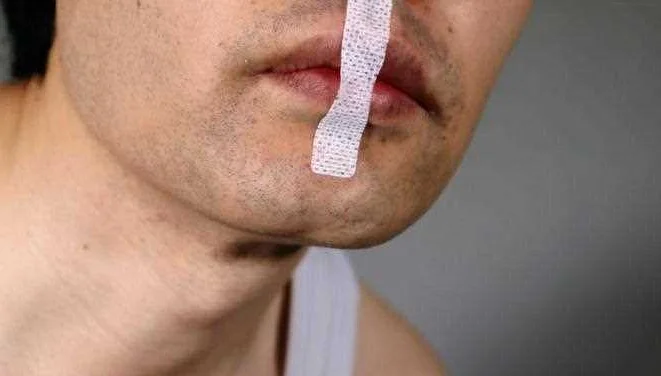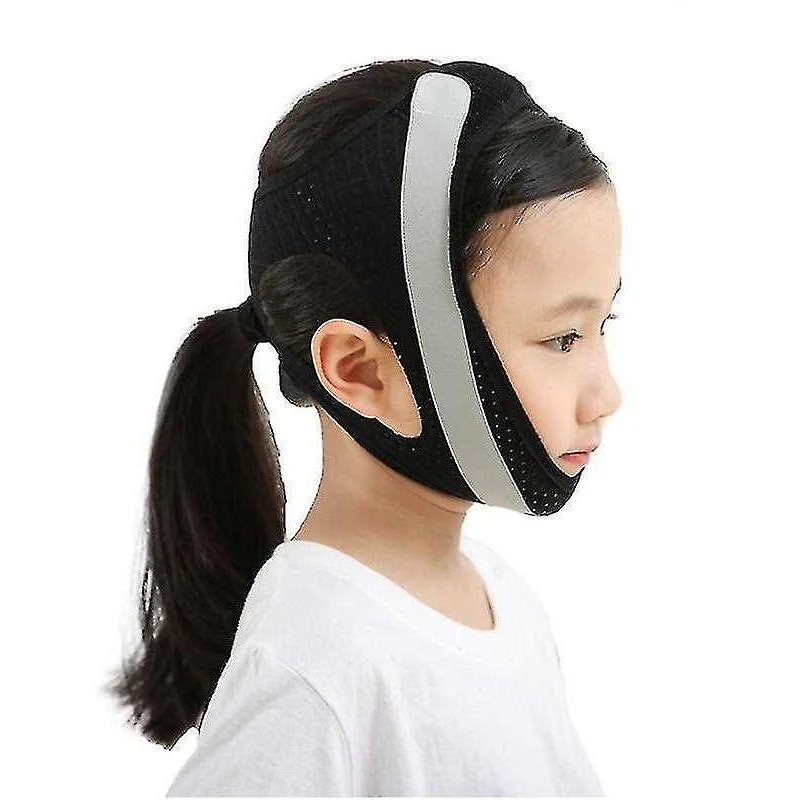Benefits of Covering Your Mouth with a Bandage Before Going to Bed
Discover the benefits of covering your mouth with a bandage before going to bed. Learn how this simple practice can improve your sleep quality and overall well-being.
Are you struggling with getting a good night’s sleep? It turns out that a simple solution may be right under your nose – or rather, over it. Yes, you heard that right! Covering your mouth with a bandage before going to bed can actually improve the quality of your sleep.
When we sleep, our bodies naturally go into a relaxed state, including the muscles in our throat and mouth. However, for some people, this relaxation can lead to breathing through the mouth instead of the nose. Breathing through the mouth can cause a variety of issues, including snoring, dry mouth, and even sleep apnea.
By covering your mouth with a bandage, you can encourage yourself to breathe through your nose instead. This simple act can have a significant impact on your sleep quality. Breathing through the nose allows for better oxygen flow and can help prevent snoring and other breathing-related sleep disturbances.
The Importance of Quality Sleep

Getting enough quality sleep is essential for overall health and well-being. Sleep plays a crucial role in various aspects of our lives, including physical, mental, and emotional health.
During sleep, our body repairs and rejuvenates itself. It helps to restore energy levels, repair damaged tissues, and strengthen the immune system. Without sufficient sleep, our body may become more susceptible to illnesses and infections.
Quality sleep is also essential for cognitive function. It improves memory, concentration, and problem-solving skills. When we sleep, our brain consolidates information and processes emotions, which helps us to think clearly and make better decisions.
Furthermore, sleep is closely linked to mood regulation. Lack of sleep can lead to irritability, mood swings, and increased stress levels. On the other hand, good sleep can improve our mood, reduce stress, and enhance overall mental well-being.
In addition, quality sleep plays a significant role in maintaining a healthy weight. It helps regulate appetite hormones, reducing the risk of overeating and obesity. Lack of sleep can disrupt these hormones, leading to increased cravings for unhealthy foods and a higher risk of weight gain.
Overall, prioritizing quality sleep is crucial for our overall health and well-being. By ensuring we get enough restful sleep each night, we can improve our physical health, mental clarity, and emotional well-being.
How Covering Your Mouth Can Enhance Your Sleep
Many people are unaware of the benefits of covering their mouth before going to bed. While it may seem unusual, this simple technique can greatly enhance your sleep and overall well-being.
When you cover your mouth with a bandage or cloth before sleeping, you create a barrier that encourages nasal breathing. Nasal breathing is essential for optimal sleep as it helps regulate oxygen and carbon dioxide levels in the body.
By covering your mouth, you ensure that you breathe through your nose during the night, allowing you to take advantage of the numerous benefits associated with nasal breathing. Nasal breathing helps filter and humidify the air, reducing the risk of allergies and dryness in your throat and nasal passages.
In addition to promoting healthy breathing patterns, covering your mouth can also help prevent snoring. Snoring often occurs when the airway becomes partially blocked, resulting in vibrations that produce the sound. By encouraging nasal breathing, you reduce the likelihood of airway obstruction and snoring.
Covering your mouth can also aid in relaxation and reduce stress. When you breathe through your nose, your body activates the parasympathetic nervous system, which is responsible for promoting a calm state. This can lead to a more peaceful sleep and a feeling of rejuvenation upon waking up.
Furthermore, covering your mouth can improve sleep quality by reducing the risk of mouth breathing-related sleep disorders, such as sleep apnea. Sleep apnea is a condition characterized by pauses in breathing during sleep, often caused by airway obstruction. By maintaining nasal breathing, you decrease the likelihood of experiencing these interruptions and promote a more restful sleep.
Overall, covering your mouth before going to bed can have numerous positive effects on your sleep and well-being. It enhances nasal breathing, reduces snoring, promotes relaxation, and reduces the risk of sleep disorders. Consider incorporating this simple technique into your bedtime routine for improved sleep quality and overall health.
Benefits of Using a Bandage to Cover Your Mouth
Using a bandage to cover your mouth while sleeping can have several benefits for your overall sleep quality and health. Here are some of the key advantages:
- Improved nasal breathing: By covering your mouth, you encourage nasal breathing, which is the natural and preferred way of breathing. Nasal breathing helps to filter and humidify the air, reducing the risk of breathing in pollutants and irritants.
- Reduced snoring: Many people snore primarily when they breathe through their mouths during sleep. By covering your mouth, you promote nasal breathing, which can help reduce snoring and improve the quality of your sleep.
- Enhanced oxygen intake: Nasal breathing allows for a more efficient exchange of oxygen and carbon dioxide in the lungs. This can lead to increased oxygen intake, which is vital for various bodily functions and overall well-being.
- Prevention of dry mouth: Breathing through the mouth can cause dryness in the mouth and throat, leading to discomfort and potentially contributing to oral health issues. Using a bandage to cover your mouth helps maintain moisture and prevents dry mouth during sleep.
- Encouraged relaxation and stress reduction: Breathing through the nose has a calming effect on the nervous system, promoting relaxation and reducing stress levels. By covering your mouth, you can enhance this effect and potentially improve your overall sleep quality.
- Potential improvement in sleep disorders: For individuals with certain sleep disorders, such as sleep apnea or mouth breathing habit, using a bandage to cover the mouth may be a helpful adjunct to other treatment methods. It can aid in keeping the airways open and improving breathing patterns.
While using a bandage to cover your mouth during sleep may not be suitable for everyone, it can be worth considering if you experience issues with mouth breathing, snoring, or poor sleep quality. Consulting with a healthcare professional can help determine if this practice may be beneficial for you.
Science Behind Improved Sleep with Mouth Covering

Many people underestimate the importance of breathing through the nose while sleeping. However, scientific research has shown that covering the mouth with a bandage before going to bed can significantly improve sleep quality.
When we breathe through our mouth while sleeping, several issues can arise. Mouth breathing can lead to snoring and sleep apnea, which can cause interruptions in breathing and lead to poor sleep. Additionally, breathing through the mouth can dry out the throat and nasal passages, causing discomfort and potentially leading to infections.
By covering the mouth with a bandage, individuals are encouraged to breathe through their nose instead. Breathing through the nose has several benefits for sleep. First, it helps to filter and warm the air before it enters the lungs, ensuring better oxygenation. Nasal breathing also promotes the production of nitric oxide, which has been shown to have various health benefits, including improved sleep.
Furthermore, nasal breathing helps to regulate airflow, preventing snoring and sleep apnea. Breathing through the nose involves a complex process that activates specific muscles and encourages proper tongue positioning, which can help keep the airway open during sleep.
Research has also suggested that mouth covering during sleep can help prevent or alleviate symptoms of dry mouth and throat. By keeping the mouth closed, moisture is retained in the oral cavity, reducing the discomfort and potential for infections.
In conclusion, the science behind improved sleep with mouth covering is solid. Nasal breathing offers a range of benefits for sleep quality, including better oxygenation, reduced snoring, and improved overall airflow. By covering the mouth, individuals can encourage nasal breathing and enjoy a more restful night’s sleep.
Tips for Using a Bandage to Cover Your Mouth at Night

Here are some tips to help you effectively use a bandage to cover your mouth at night:
- Choose the right bandage: Select a bandage that is comfortable and breathable. Look for a bandage made of soft, non-irritating material that will allow air to flow freely.
- Cleanse the area: Before applying the bandage, make sure your mouth and surrounding skin are clean and dry. This will help the bandage adhere properly and stay in place throughout the night.
- Position the bandage: Place the bandage horizontally across your mouth, ensuring it covers both your lips and the area around your mouth. Adjust the bandage to a comfortable tightness, making sure it is secure but not too tight.
- Secure the bandage: Use the adhesive strips or tabs on the bandage to secure it in place. Make sure the bandage is firmly attached and will not come off during the night.
- Practice breathing through your nose: To maximize the benefits of using a bandage to cover your mouth, try to breathe through your nose while sleeping. This may take some practice, but it will help improve airflow and reduce the risk of snoring or other sleep disturbances.
- Remove the bandage carefully: When you wake up in the morning, remove the bandage gently to avoid any discomfort or irritation. Discard the used bandage and replace it with a fresh one the next night.
By following these tips, you can effectively use a bandage to cover your mouth at night and potentially improve your sleep quality and overall well-being.